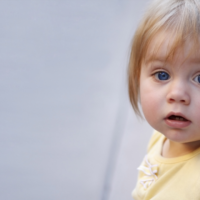foster care
-

Mental health and care-experienced young people: are our mental health support services appealing and accessible?
Children in care are much more likely to experience mental health problems than young people in the general population. Early life experiences, such as abuse, neglect, parental drug-use or violence likely play a major part in this. So too could the instability that is often inherent in the care system.
Read more -

Exploring the experiences of care networks providing therapeutic support to Unaccompanied Asylum-Seeking Minors
Dr. Hayley Rajpal explores the experiences of care networks providing therapeutic support to Unaccompanied Asylum-Seeking Minors. Talk delivered at the ACAMH Southern Branch ‘Service improvement and research: Innovation and new challenges in CAMHS’. Free to watch.
Read more -

Therapeutic Engagement with Unaccompanied Asylum-Seeking Minors
This Refugee Week, we are joined by Dr. Hayley Rajpal to explore the challenges of therapeutic engagement with unaccompanied asylum-seeking minors.
Read more -

Complex PTSD in young people in care
Aishat Hamzat, Rachel M Hiller and Helen Minnis discuss what research tells us about the mechanisms underlying complex PTSD symptoms experienced by young people in care. They consider implications for treatment and broader support provided for these young people
Read more -

Predicting Complex PTSD in Foster Care – CAMHS around the Campfire
This session we are discussing complex PTSD, with the focus on Dr. Rachel Hiller’s JCPP open access paper ‘A longitudinal study of cognitive predictors of (complex) post‐traumatic stress in young people in out‐of‐home care’. ACAMH members can now receive a CPD certificate for watching this recorded lecture.
Read more -

Early deprivation is linked to long-term social communication difficulties
Maltreatment affects a staggering 1 billion children worldwide. Most of these maltreated children, but particularly those raised in institutions that are characterized by deprivation, experience some form of neglect. These children seem to be at risk of developing social, cognitive and psychiatric difficulties later in life.
Read more -

Can we predict (complex) PTSD in young people in foster care?
Adverse, early life experiences put young people at risk of developing psychological difficulties. Potential difficulties might include post-traumatic stress disorder (PTSD) or the newly proposed, complex PTSD.
Read more -

Foster care promotes adaptive functioning in early adolescence among children who experienced severe, early deprivation.
Experiences in our early life can have long-term consequences on development. Children who have experienced severe deprivation, in the form of institutional care (orphanages), are at greater risk to experience a range of social, emotional, and cognitive difficulties. In fact, much of the research tracing long-term consequences of early adversity have come from a deficit model (i.e., “what goes wrong for those with negative experiences”).
Read more -

Sleep partially mediates the link between adverse childhood experiences and delinquency
A recent study has now investigated the mechanisms underlying the apparent link between ACEs and high rates of delinquency in children in foster care, with a specific focus on sleep.
Read more